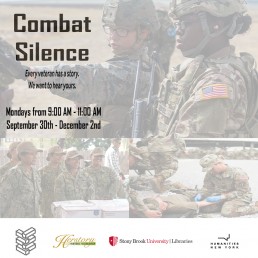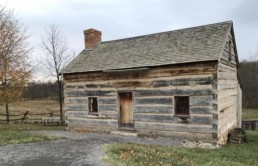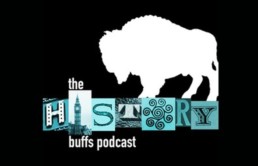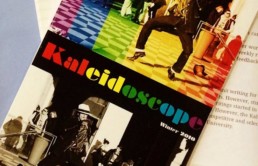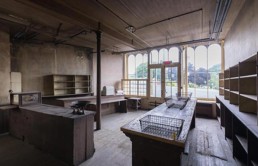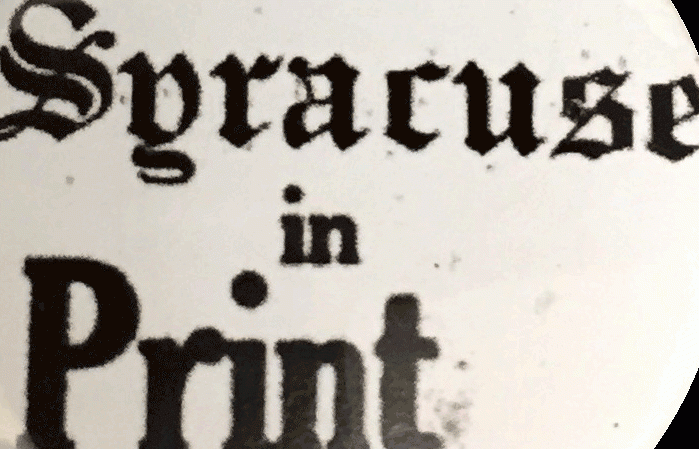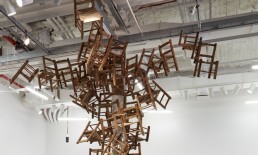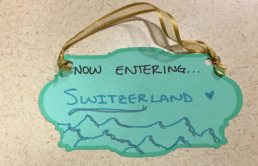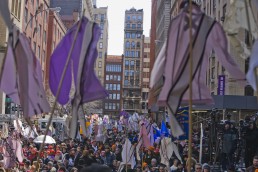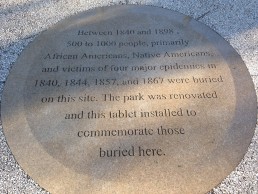Combat Silence: Empowering the Female Veteran through Experiential Learning in the Literature Classroom
What silences would we be able to break if we brought together women veterans of different ages and branches who joined the military for a host of different reasons?
by Meghan Buckley
School Curriculum
Learn More
It gave us a "sense of empathy and collective encouragement" and the ability to "ask questions about ourselves and others to see how stories have shaped them"
– Student Veteran Participants
"Everyone is affected by war, one way or another."
– Civilian Student Participant
Share
Project Description:
In fall 2019, civilian students in my upper-level “Literature of War” course embarked on an experiential learning process to write about their relationship to war and the military alongside female veterans, in partnership with the Herstory Writers Workshop of Long Island. The initiative, titled “Combat Silence,” asked the following questions: 1) What silences would we be able to break if we brought together women veterans of different ages and branches who joined the military for a host of different reasons? and 2) What contributions would the student writers make, and how would their presence dare the veteran writers to go deeper into their own stories to find the words that they most wanted the world to hear? The memoir essays produced by my civilian students and the female veterans were the result of open dialogue and feedback between the two groups and proved mutually beneficial. Students in the course wrote alongside female veterans, but also read a sampling of published memoirs by servicewomen; doing so encouraged them to realize the relative dearth of female authored/focused war literature while also recognizing the need to view servicewomen as active combatants and participants instead of spectators or victims. The female veteran participants benefitted from the opportunity for community reintegration the workshop provided and the opportunities for advice and cross-dialogue from the student civilian audience.
Project Inspiration:
Research to date focuses on how trauma and war impacts veterans who choose artistic methods like poetry and memoir to share their stories. However, many of the widely available memoirs and testimonials are skewed towards a white, male experience of combat and war. This project to give voice to female veterans helps rectify this imbalance. Simply put, female voices are often excluded from the “war canon” in various types of media and narrative—from movies and television, to war novels, poems, and memoirs. And yet, according to its most recent demographics survey, the Veterans Alliance reports that women comprise roughly 15-20% of US Army, Navy, Air Force, and Marines enlistees. Most contemporary and popular war memoirs are written by white males; female memoirs about the recent wars in Iraq and Afghanistan exist, but few of them are celebrated or “sell well,” compared to their male veteran counterparts, and virtually none of them are considered part of the war canon. People tend to gravitate towards memoirs when wanting to read war literature because memoirs are autobiographical and based on real past experiences; in other words, they are getting to the “truth” of what life was like as a soldier. However, the question that this project asked the public to consider was: How can we understand the true experience of war and combat when the memoirs that are widely available to us are predominantly written by white, male soldiers and only offer a small sliver of the myriad perspectives a soldier can have?
Community Partnerships:
The mission behind the Herstory Writers Workshop is to bring unheard voices into the public arena, transforming lived experiences into written memoirs powerful enough to change hearts, minds, and policy. Since its founding in 1996, the Herstory program has implemented workshops in secondary and higher education institutions, jails, and within local communities on Long Island, offering workshops in both English and Spanish. In doing so, they strive to create a body of living literature that is meant to be shared in order to promote empathy, change, and compassion.
We were able to identify 5 willing female veterans to enroll in our weekly workshop on Monday mornings in fall 2019. The demographic of the veteran participants were as follows: one SBU student veteran who was a former Airforce pilot, three female Army veterans, including one who served in the Army Medical Command unit, and a retired member of the Navy reserves. In our recruitment emails we asked any interested women to tell us what they hoped they might gain from participating. The women who contacted us listed different reasons for wanting to join our group, but the common factor amongst all of their responses was that they were intrigued by the concept of getting to write and share their memories of war alongside other women. Another commonality in their emails was the contention that the battles they faced were not “overseas,” but with PTSD and problematic military power dynamics that privileged the career trajectories and achievements of men over women.
Results and Implications for Future Initiatives:
The workshop lasted 9 weeks, culminating in a “celebration” where all involved in writing a memoir piece read a portion aloud to an audience of their workshop peers and facilitators, as well as a few guests who were instrumental in developing the workshop and ensuring its success. Overall, 19 memoir pieces were produced from the students and veteran participants.
The Herstory workshop generated specific social and pedagogical outcomes for both the civilian students simultaneously enrolled in the course and workshop, and the female [student] veterans who participated in the workshop only. The female veterans involved not only responded to the students’ work and engaged with them in dialogue about the realities of military life for women, but themselves learned more about what the demographic of college-age civilians wants and needs to learn about the veteran experience. In their anonymous evaluations of the workshop, the female [student] veterans emphasized the feelings of community and support the workshop provided them. Specifically, they expressed the workshop’s value in giving them a “sense of empathy and collective encouragement,” how the workshop became a “family” and a “support system” the more often it met and the more writing was shared between participants, and gave them the ability to “ask questions about [them]selves and others to see how stories have shaped them.” As it relates to their composing, the female [student] veterans took away the following:
- Selecting the story/memory they most wanted to tell
- Finding their voice and reclaiming agency for their time at war
- Finding a supportive peer group that used a specific methodology for bibliotherapeutic memoir writing
The civilian students who participated in the workshop also received numerous pedagogical benefits that are atypical of regular literature and composition courses. In their anonymous course evaluations at the end of the semester, many of them reflected that the course was particularly valuable because of its emphasis on “actively learning about others’ experiences,” and focusing on the “content of the story and not the writing technicalities.” They agreed that the experience of interacting with and writing alongside veterans was much more powerful than simply reading “books about war,” and they also voiced that the combination of the workshop and the course content convinced them that “everyone is affected by war, one way or another.” Some of their specific pedagogical advantages included:
- Using stories to reorient themselves to their family’s history and relationship to war
- Using skills honed by their major in new and unexpected ways
- Revising
- Learning about the public humanities and making connections to the campus community
Overall, completing this project has helped me to diversify my syllabus and include the more marginalized voices of female veterans, while establishing real-life connections to various organizations within our local community so that my students could interact with and benefit from pedagogical exercises and events that aligned with my research aims of making the study of war literature more diverse and inclusive. It has also encouraged myself, my students, and especially the female veterans who participated to reconceive the value of memoir writing for former soldiers by expanding the parameters of whose voices get to be heard, celebrated, widely taught, and valued.
About this Fellow
Meghan Buckley is a PhD candidate in the English department at Stony Brook University. Her research interests include 20th and 21st century American literature with a focus on trauma studies, ecocriticism, and war literature. She is currently at work on her dissertation, which examines the function of landscape in contemporary literature of the Iraq War. In 2019-2020 she was a Stony Brook University Public Humanities Fellow. An article about her public humanities project is forthcoming in The Journal of Veterans Studies in their special issue on “Women and the Iraq War,” of which she is a co-editor.
Hero image: Program Banner courtesy of Meghan Buckley.
Related Content
Upstate Historical
An interactive website that brings the rich history of Upstate New York to life through stories and tours…
The History Buffs
A podcast series—founded by seven historians from Buffalo, NY—that explores diverse topics from a historical perspective…
The Kaleidoscope Project
The Kaleidoscope Project was founded on a simple premise: when kids have access to stories that validate their lives, they feel more empowered to learn.
The Sunday List
A restoration of a bakery run by Jewish immigrants that served the entire community in Kingston, NY for about 80 years.
November 1, 2018Oral History,Remembrance,Local History,PreservationExhibit
Syracuse in Print
Syracuse in Print celebrates our analog now by partnering with local libraries, makerspaces, and other community organizations that value print culture in its eclectic, varied forms.
Bordering the Imaginary: Art from the Dominican Republic, Haiti, and Their Diasporas
An art exhibition and related programming that explored the historical relationship of the Dominican Republic, Haiti, and their diasporas in New York.
Literature in Medicine
A project bringing college students into local hospitals to explore the intersection of art and health.
Remember the Triangle Fire
A night of multi-media commemorating the Triangle Shirtwaist Factory fire and supporting continuing efforts to improve labor conditions around the world.
Making the Public History Classroom Public
Fieldwork by students at the Olde Towne of Flushing Burial Ground Conservancy which resulted in major projects throughout New York City.
September 10, 2019Local History,Education,PreservationSchool Curriculum
Chinatown Movements: Past, Present, & Futures
A series of public events highlighting historic and contemporary social movements in Manhattan's Chinatown.
September 11, 2019Oral History,Remembrance,Local History,Preservation,DiasporaEvent

